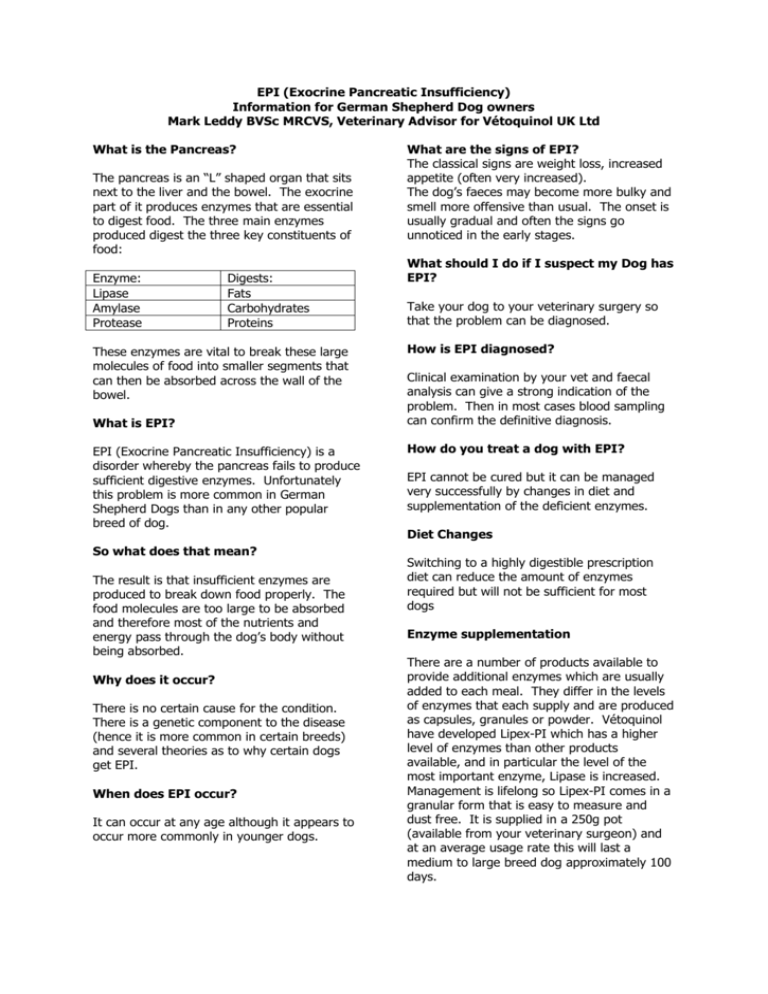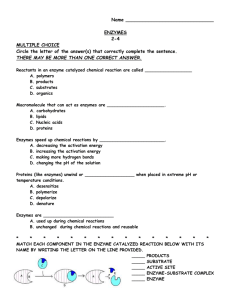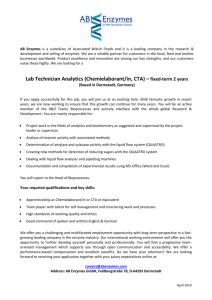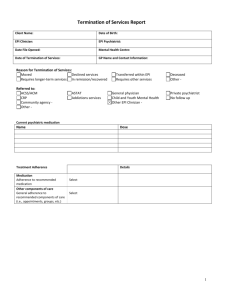EPI (Exocrine Pancreatic Insufficiency)
advertisement

EPI (Exocrine Pancreatic Insufficiency) Information for German Shepherd Dog owners Mark Leddy BVSc MRCVS, Veterinary Advisor for Vétoquinol UK Ltd What is the Pancreas? The pancreas is an “L” shaped organ that sits next to the liver and the bowel. The exocrine part of it produces enzymes that are essential to digest food. The three main enzymes produced digest the three key constituents of food: Enzyme: Lipase Amylase Protease Digests: Fats Carbohydrates Proteins These enzymes are vital to break these large molecules of food into smaller segments that can then be absorbed across the wall of the bowel. What is EPI? EPI (Exocrine Pancreatic Insufficiency) is a disorder whereby the pancreas fails to produce sufficient digestive enzymes. Unfortunately this problem is more common in German Shepherd Dogs than in any other popular breed of dog. So what does that mean? The result is that insufficient enzymes are produced to break down food properly. The food molecules are too large to be absorbed and therefore most of the nutrients and energy pass through the dog’s body without being absorbed. Why does it occur? There is no certain cause for the condition. There is a genetic component to the disease (hence it is more common in certain breeds) and several theories as to why certain dogs get EPI. When does EPI occur? It can occur at any age although it appears to occur more commonly in younger dogs. What are the signs of EPI? The classical signs are weight loss, increased appetite (often very increased). The dog’s faeces may become more bulky and smell more offensive than usual. The onset is usually gradual and often the signs go unnoticed in the early stages. What should I do if I suspect my Dog has EPI? Take your dog to your veterinary surgery so that the problem can be diagnosed. How is EPI diagnosed? Clinical examination by your vet and faecal analysis can give a strong indication of the problem. Then in most cases blood sampling can confirm the definitive diagnosis. How do you treat a dog with EPI? EPI cannot be cured but it can be managed very successfully by changes in diet and supplementation of the deficient enzymes. Diet Changes Switching to a highly digestible prescription diet can reduce the amount of enzymes required but will not be sufficient for most dogs Enzyme supplementation There are a number of products available to provide additional enzymes which are usually added to each meal. They differ in the levels of enzymes that each supply and are produced as capsules, granules or powder. Vétoquinol have developed Lipex-PI which has a higher level of enzymes than other products available, and in particular the level of the most important enzyme, Lipase is increased. Management is lifelong so Lipex-PI comes in a granular form that is easy to measure and dust free. It is supplied in a 250g pot (available from your veterinary surgeon) and at an average usage rate this will last a medium to large breed dog approximately 100 days.









